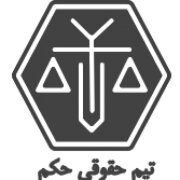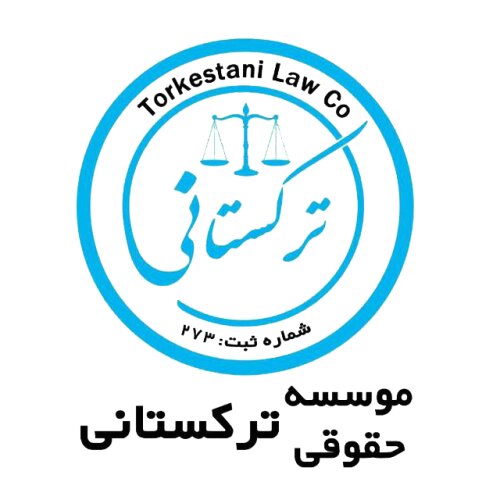Best Drug Crime Lawyers in Iran
Share your needs with us, get contacted by law firms.
Free. Takes 2 min.
Or refine your search by selecting a city:
List of the best lawyers in Iran
About Drug Crime Law in Iran
Drug crime in Iran carries severe penalties, including long prison sentences and even the death penalty in some cases. Possession, trafficking, and consumption of illegal drugs are strictly prohibited by Iranian law.
Why You May Need a Lawyer
You may need a lawyer if you are facing drug-related charges in Iran, as the legal system can be complex and difficult to navigate on your own. A lawyer can help you understand your rights, defend your case in court, and potentially reduce the severity of your punishment.
Local Laws Overview
In Iran, the possession, distribution, and trafficking of drugs are all illegal. The penalties for drug crimes can be severe, including long prison sentences and even the death penalty for serious offenses. It is important to be aware of the local laws and regulations regarding drug crimes in Iran to avoid getting into legal trouble.
Frequently Asked Questions
1. What are the penalties for drug crimes in Iran?
The penalties for drug crimes in Iran can vary depending on the severity of the offense. Possession of even small amounts of drugs can result in prison sentences, and trafficking can lead to the death penalty.
2. Can I be arrested for drug possession in Iran?
Yes, drug possession is a criminal offense in Iran and can result in arrest, prosecution, and potential imprisonment.
3. Is drug addiction treated as a crime in Iran?
Drug addiction is not treated as a crime in Iran, but drug possession and trafficking are illegal and can result in severe penalties.
4. Can I request a lawyer if I am arrested for a drug-related offense in Iran?
Yes, you have the right to request a lawyer if you are arrested for a drug-related offense in Iran. It is recommended to seek legal representation as soon as possible.
5. What should I do if I am accused of a drug crime in Iran?
If you are accused of a drug crime in Iran, it is important to remain calm and seek legal advice immediately. Do not make any statements or admissions without consulting with a lawyer first.
6. Are there any rehabilitation programs for drug offenders in Iran?
Yes, Iran has rehabilitation programs for drug offenders, but participation in these programs is not a guarantee of avoiding criminal charges or penalties.
7. Can my family members be held responsible for my drug-related offenses in Iran?
Family members are not typically held responsible for an individual's drug-related offenses in Iran, but they may be called upon to provide information or support during legal proceedings.
8. Are there any alternatives to imprisonment for drug offenders in Iran?
Iran does not have widespread alternatives to imprisonment for drug offenders, but in some cases, rehabilitation programs may be offered as an alternative to incarceration.
9. Can foreigners be prosecuted for drug crimes in Iran?
Yes, foreigners can be prosecuted for drug crimes in Iran, and they are subject to the same legal penalties as Iranian citizens.
10. What should I look for in a lawyer for drug crime cases in Iran?
When looking for a lawyer for drug crime cases in Iran, it is important to find someone with experience in criminal defense, knowledge of Iranian drug laws, and a track record of successful outcomes in similar cases.
Additional Resources
For more information on drug crime laws in Iran, you can contact the Iranian Bar Association or the Iranian Judicial Institution. You can also seek guidance from international organizations such as Amnesty International or Human Rights Watch.
Next Steps
If you are in need of legal assistance for a drug-related offense in Iran, it is crucial to contact a qualified lawyer as soon as possible. They can help guide you through the legal process, protect your rights, and work towards the best possible outcome for your case.
Lawzana helps you find the best lawyers and law firms in Iran through a curated and pre-screened list of qualified legal professionals. Our platform offers rankings and detailed profiles of attorneys and law firms, allowing you to compare based on practice areas, including Drug Crime, experience, and client feedback.
Each profile includes a description of the firm's areas of practice, client reviews, team members and partners, year of establishment, spoken languages, office locations, contact information, social media presence, and any published articles or resources. Most firms on our platform speak English and are experienced in both local and international legal matters.
Get a quote from top-rated law firms in Iran — quickly, securely, and without unnecessary hassle.
Disclaimer:
The information provided on this page is for general informational purposes only and does not constitute legal advice. While we strive to ensure the accuracy and relevance of the content, legal information may change over time, and interpretations of the law can vary. You should always consult with a qualified legal professional for advice specific to your situation.
We disclaim all liability for actions taken or not taken based on the content of this page. If you believe any information is incorrect or outdated, please contact us, and we will review and update it where appropriate.
Browse drug crime law firms by city in Iran
Refine your search by selecting a city.

















